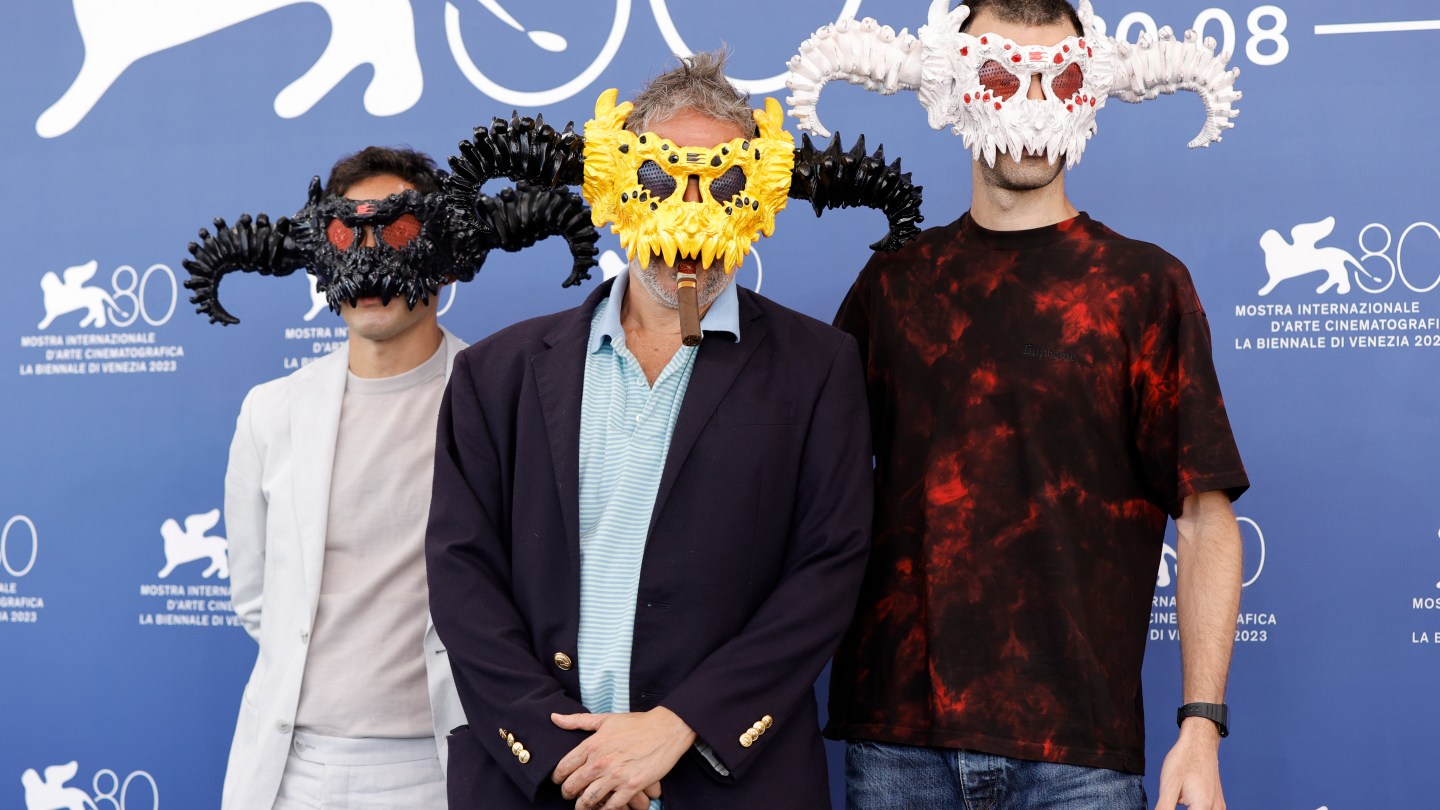Travis Scott making the jump from Aggro Dr1ft to hang out with Bunny Boy?
The kids from Kids meeting up with Alien and the Spring Breakers?
Something else Harmony Korine hasn’t come up with yet?
Korine’s studio EDGLRD is making a first-look deal with Runway, the New York-based film-focused machine-intelligence firm, The Hollywood Reporter has learned. The pact will allow EDGLRD to deploy the company’s generative AI tools in new ways across all of its creative products, including traditional films, immersive pieces and brand videos.
“This open up all kinds of creative output — visual styles and identities that haven’t been explored before,” Alon Soran, chief commercial officer at EDGLRD, told THR.
The companies have previously worked together in a less formal way. Runway helped provide the AI baby faces in last year’s Venice Film Festival premiere Baby Invasion, a hybrid movie-videogame centered on a home invasion by thieves wearing baby masks. A spot last month for Valentino’s upcoming fall-winter collection produced by EDGLRD also made use of Runway’s tools.
While a first-look deal generally applies to creative work like scripts, principals said it will extend here to allow EDGLRD access to tech tools, while Runway will bring some creative projects to EDGLRD as well. No money is exchanging hands as part of the deal.
As part of the pact, Korine will also serve on the jury at Runway’s AI Film Festival that will take place at New York’s Alice Tully Hall and L.A.’s The Broad Stage Theater this June.
The news comes just about a week after Runway both announced a new $308 million funding round (it put the company’s valuation at over $3 billion) and debuted Gen-4 — a tool that among other things allows AI generated scenes and characters to run for far longer stretches than the short bursts that have typified the tech.
Runway also made headlines in the fall for a deal with Lionsgate, in which the studio is using Runway’s tech to build a model trained exclusively on Lionsgate IP.
While the Miami-based EDGLRD (pronounced Edgelord) is by any measure a niche company, its deeper relationship with Runway could have some notable effects on the landscape.
For Runway, a deal with an artistic figure like Korine provides a key piece of street cred as it seeks to persuade skeptics in Hollywood that AI can be a vessel for genuine creativity and not just a slick regurgitation of past work. Some traditional entertainment entities also worry about the legal implications of using tools trained on copyrighted material; the willingness of a respected production house, albeit a boundary-pushing one, to publicly embrace a model trained across the landscape could boost its case. (Relying only on internal data, the Lionsgate deal does not test those limits.)
On Korine’s end, access to the tools and staff of one of the tech world’s more film-friendly companies could speed up the kind of AI-centric pieces he and his collaborators do. Known earlier in his career for ’90’s slacker work like Gummo and his script for Kids, Korine has embraced technology in recent years as he’s build EDGLRD into an outre studio. (THR’s bottom line in the Baby Invasion review was “drugs are recommended”).
Runway executives say they see partnerships like this as doing nothing less than advancing a cinematic art form.
“The really exciting opportunity for someone like Harmony is the way he approaches media and formats and story structures in such a novel way, which is one of the big unlocks with these tools,” says Jamie Umpherson, who heads creative at Runway and Runway Studios. “You can begin to do things you just couldn’t do before — impossible things.” Like Soran, he emphasized new dimensions in creativity, a noteworthy shift from some AI insiders who seek to talk about the tech mainly as time- and cost-savings tools that affect creativity more indirectly.
Founded by the Chile-born Alejandro Matamala and Cristóbal Valenzuela and the Greece-born Anastasis Germanidis, Runway has been establishing a foothold in the entertainment firmament for some time. Valenzuela in particular is known as a cinephile, and the video tools his company creates are often designed with filmmakers in mind. The Gen-4 model features greater degrees of camera control (ie, you can prompt the machine to generate images from very specific camera angles) and character continuity (ie the ability for beings in a film to look the same in each scene, a problem that can bedevil AI video).
On Wednesday James Cameron added his voice to the chorus of filmmakers cautiously optimistic about the use of generative AI, saying on a Meta podcast that he believes human creators also channel influences from others, potentially mooting some of the derivative-oriented criticism. (The director says he feels that it is specialty companies — a group that includes both Runway and Stability AI, on whose board he sits — that will dominate filmmaking more than a general-interest firm like OpenAI.) Cameron said the tech’s ability to generate shots so quickly will allow artists to “move on and do other cool things and then other cool things.”
Hollywood creators have raised concerns that when a piece iterates that quickly it can take away the human gestation that has yielded history’s best work.
EDGLRD principals, at least, say those concerns are misguided.
“I know a lot of people are afraid of it but what this tech enables you to do is take anything inside your brains and bring it to life immediately,” Soran said. “For the first time our ability to make things is at the same pace of our ability to think of them. I think that matching pace is going to break the floodgates open.”
